 |
Home > Invertebrates
> Tunicates
Updated 12/21/2022
Phylum Urochordata
Tunicates
or Sea Squirts
| Sea Squirts are filter-feeding animals that are abundant in all
oceans, attached to firm surfaces or drifting as zooplankton (salps).
They range from single animals, colonies of individuals, to compound
forms within a common tunic. Larvae possess a notochord therefore they are
related to vertebrates. They may be distinguished from sponges
because of the tough outer skin or tunic. Most are difficult to
identify beyond family or genus. Since these attach and grow
rapidly many species have spread around the world via ships, becoming
invasive and dominate harbor ecosystems. |
HAWAII - ENDEMIC
| Aplidum
crateriferum
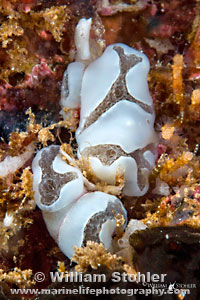
CRATERED TUNICATE

|
|
| |
|
|
|
|
|
|
INDO-PACIFIC / HAWAII
| Didemnum spp.
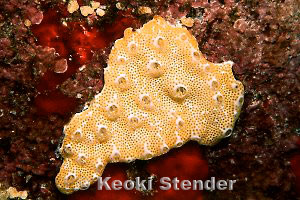
COMPOUND TUNICATE
|
Eudistoma
spp.
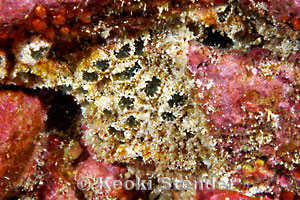
SAND TUNICATE
|
| Botryllus spp.
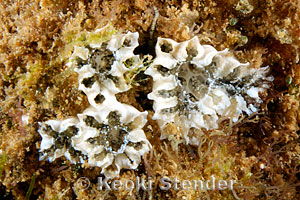
FLOWER TUNICATE
|
Diazona
spp.
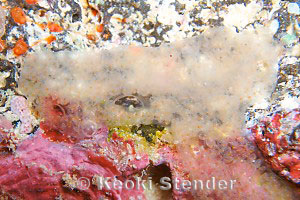
DIAZONA
|
| Aplidum
spp.
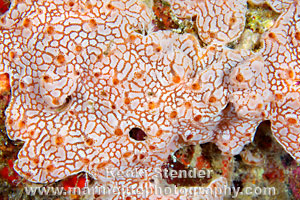
APLIDIUM
|
Herdmania momus
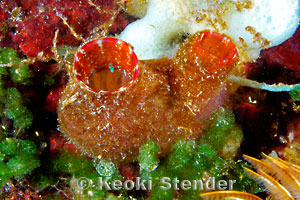
HERDMAN'S SEA SQUIRT
|
|
Distaplia spp.
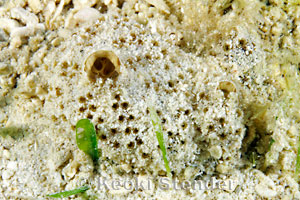
SPOKED WHEEL TUNICATE
|
Pyrosoma atlanticum

PYROSOME
|
| Benthic
species

SPECIES NOT IDENTIFIED
|
Pelagic species
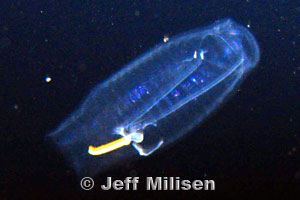
SALPS
|
|
|
|
|
|
INDO-PACIFIC
| Didemnum
molle
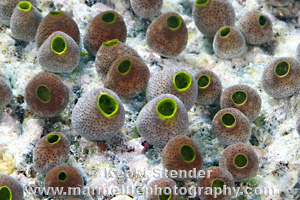
GREEN BARREL SEA SQUIRT |
Atriolum
robustum
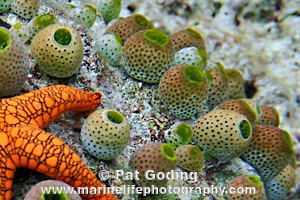
GREEN SEA SQUIRT |
|
Lissoclinum patella
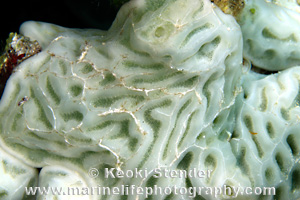
GREEN VALLEY TUNICATE |
Clavelina robusta
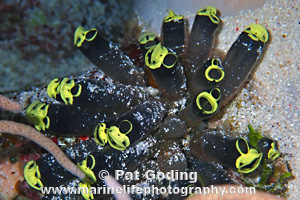
CAT EYE TUNICATE |
|
Polycarpa aurata
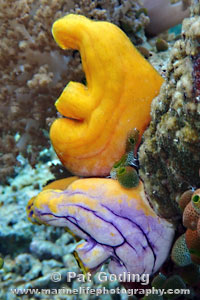
GOLDEN SEA SQUIRT |
Perophora namei
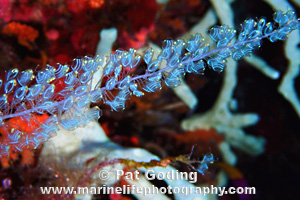
BLUE BELL SEA SQUIRT |
| Didemnum
spp.
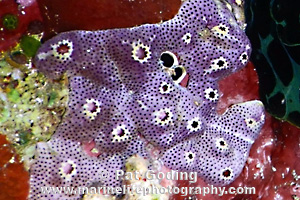
COMPOUND TUNICATE |
|
|
|
NORTHEAST PACIFIC
| Cnemidocarpa fismarkiensis
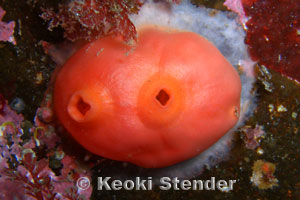
SOLITARY TUNICATE
|
|
|
|
|



